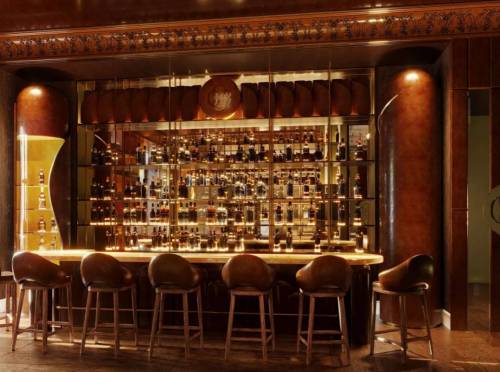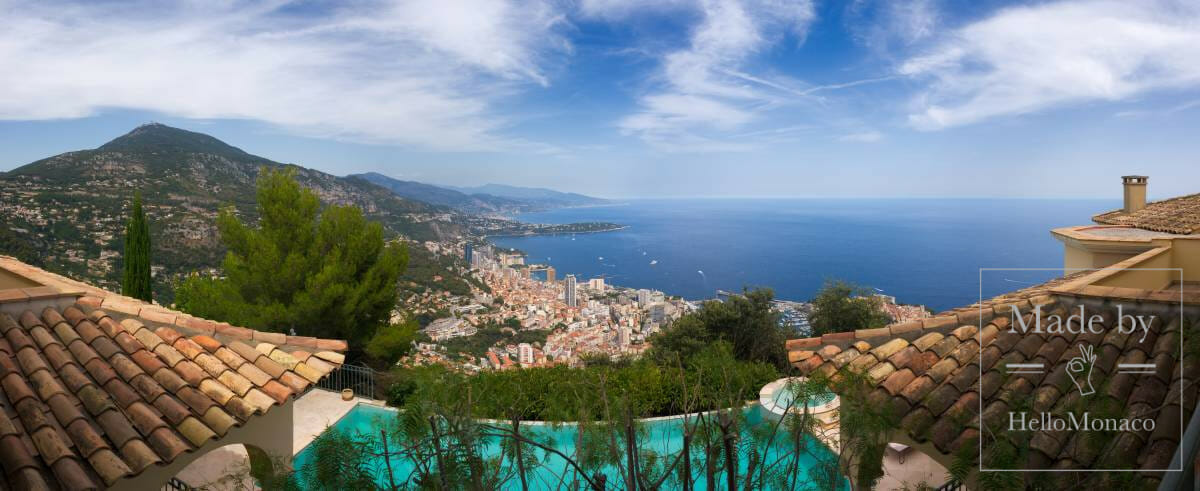The apartments will be stripped bare in order to change the pipes. Construction, which will be done in four stages, could start in January, giving tenants time to find apartments. Albert Croesi has been in charge of coordinating with the government for matters relating to the Jardins d’Apolline. His credentials? “Being a human link” in a case that affects victims in a building where water has been undrinkable for a month. “The Minister of State has requested me for this mission, in perfect agreement with the President of the National Council,” confirms Albert Croesi. “It will be long and complicated, I imagine,” he said. “I will meet with the tenants one by one to understand their needs. They must be pampered. The State will not shrink away from any expense to make these apartments totally safe. It won’t be mere tinkering.”
The chosen procedure consists of redoing the four buildings block by block, i.e. 237 apartments. Currently, a mapping of all floors is in progress to know which block is used the most, to start with that one. Ideally, the first building will be emptied by the end of 2017 to commence works in January. Government teams estimate that ten months of work is required per building, totaling nearly four years to rehabilitate the site. “The apartments will be stripped bare to the concrete, the structure of the buildings have no issues. Pipes passing through the building will be moved. And the wood fibers in the partitions, removed,” confirms Olivier Lavagna, director of Public Works.
It is necessary, for the time being, to find about sixty dwellings that will serve as apartments to shelter residents, block by block, during the works. “I am studying all the possible solutions to avoid touching public apartments in programs that will be delivered next year, and it is not simple,” argues Albert Croesi, who feels a surge of solidarity. “Some people contacted me to offer me a free apartment. Two promoters also let me know that they had housing to offer. I will go and see others and appeal to their patriotism.”
Another idea: tenants will be relocated to apartments furnished by the government. Their personal belongings will be relocated and placed in storage and then relocated at the end of the works. For the time being, due to the non-potable water, free rent is granted for three months. It will then be billed at 50% for residents during the construction period. Tenants relocated temporarily will again be exempt from rent. Concerning traders in the sector, Albert Croesiis aware of the problems that the new construction site will generate. “There will be inconveniences, but we are thinking about logistics to minimize the nuisances, there are no ideal solutions, but we will intensify the work of listening and staying close to the situation.”
The residents’ association wants the government to act quickly and complete the work in the building in two years instead of four by proceeding two blocks at a time.
The government unveiled its plans to address problems at the Jardins d’Apolline earlier this week. A project that would take place over four years, to refurbish, block by block, the four buildings of the state residence.”The government has taken the matter into its own hands, in its own way, and we’re reminding it that we must place humanity as a top priority and not make technocratic choices that are comfortable for the administration.” The ‘four years’ solution is not acceptable for residents. “The option which seems more suitable to us is to proceed to work two blocks at a time, the left and the right. These are not suggestions pulled out of thin air; we rely on studies carried out with professionals which prove the plan’s feasibility.” This option would reduce the construction phase to two and a half years. But this would require 120 housing units to temporarily relocate half of the residents during construction. Double the forecasts made by the government which, proceeding block by block, would only need 60 available houses. For members of the association, three solutions are emerging. “We have identified 60 available apartments in the private sector, there are certainly more, and it is also possible to book state-owned apartments, and allocate them for as long as our case is being settled.” Third idea to complete the apartment search: offer a temporary relocation allowance to property owners who have private accommodation or another place to live during construction. “With these three suggestions, it should be easy to relocate two blocks at a time. “
Together, the association team is pragmatic and realistic, rejecting the idea of arm-wrestling with the government. “We are not asking for hand-outs. We want to pay our rent,” says Elodie Sardi, general secretary of the association. “At the moment, the atmosphere among residents is morose.” Life projects have stopped, nothing is scheduled for the medium term. We do not know what will happen to us, our belongings will surely be in boxes at Christmas,” continues Chantal Hermenier. And daily obstacles from the building weigh heavy on its residents. “Regarding non-potable water, we have taken our pain with patience, but it is almost anecdotal compared to the extent of our problems,” says Céline Lubert, vice-president, revealing mould stains on the walls and fungus coming out of the baseboards…“We need action now,” says Lobono. “Some businesses have already lost sales with this non-potable water situation, while for others a temporary closure would ruin their business.” The next few weeks should make things clearer. A meeting is scheduled with the government on Monday.
After discovering traces of iron in the tap water in mid-June, the water is not yet potable for residents of the Jardins d’Apolline. For a matter of days, according to the authorities. “There may be some coloration in the water these days, because we are intervening in the water networks,” notes Albert Croesi, who is convinced that the new analyzes, the results of which are expected soon, will prove that the water is potable. A filter was placed on kitchen taps in each apartment. More filters are currently being installed at the base of the central pipes.
Similar preventative equipment will be installed at Hélios, a neighboring building, where alerts were given concerning the quality of the water. The risks of finding the same defects as Apolline? The government is optimistic. Albert Croesi adds: “The government and the National Council must strive for excellence, otherwise things get severe. Let us work towards the best, a real conscious effort must be made. I defend the national priority, but the important thing is to have competent and efficient companies, without falling into a Monegasco-Monegasque demagogy.”








